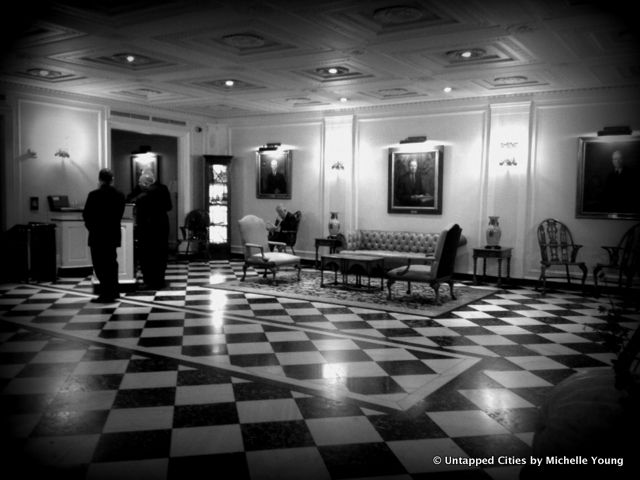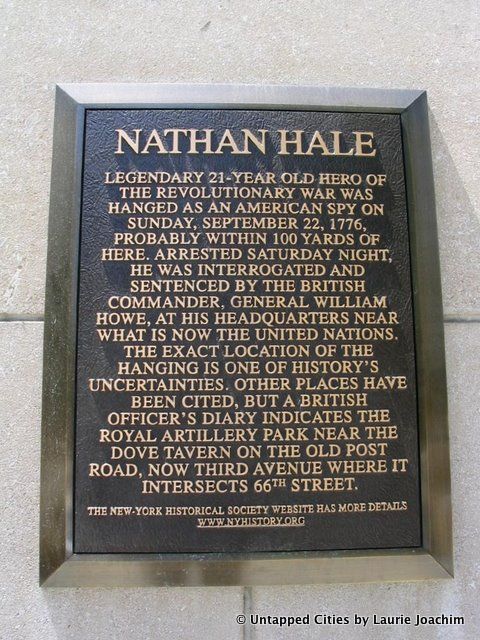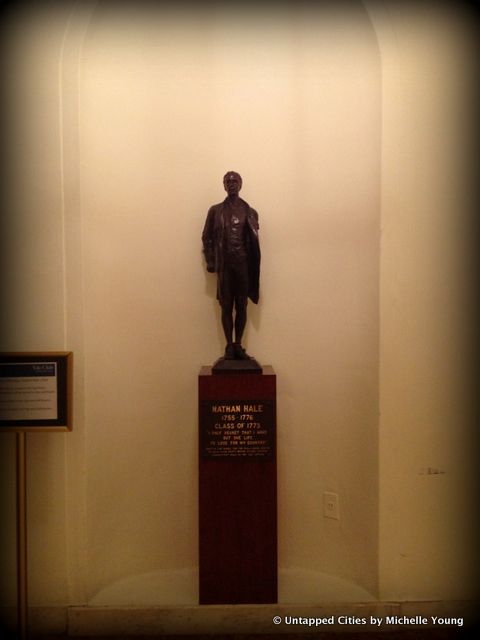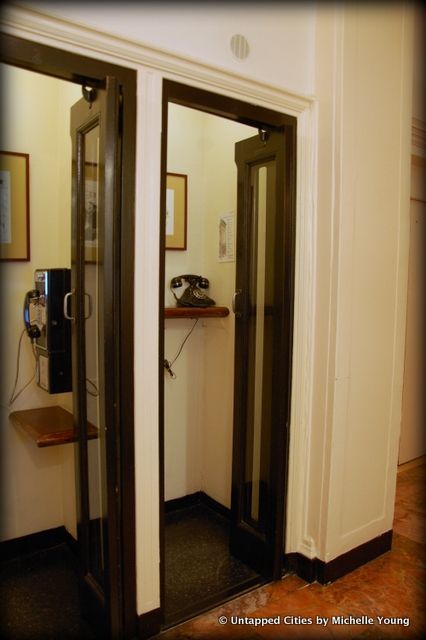The Stolen Queen: A Mystery Whodunnit Set in the Met Museum
Author Fiona Davis shares the inspiration for her latest historical fiction novel set in NYC!


We took a trip to The Yale Club of NYC yesterday, a 22-story building on Vanderbilt Avenue just across from Grand Central Terminal built in 1915. The showcase space in this old-world club is its neoclassical lounge (image above) with fluted corinthian columns, a beautiful decorative ceiling and cozy fireplaces. It’s located just near a vintage style bar in the club lined with old photographs.
Other notable spaces are the library, which has a gold coffered ceiling, the roof dining groom, a tap room with painted barrel vaulted ceilings (and a “Bulldog Bar,” named after the university mascot), and a grand ballroom.

The building was deliberately sited near the location believed to be Nathan Hale‘s execution during the Revolutionary War, as Hale was a Yale graduate in the class of 1773. In truth, the exact location is unclear as there are two plaques in the city marking Hale’s hanging by the British–one at the Yale Club and one at 3rd Avenue and 65th Street.

Plaque to Nathan Hale at the Yale Club of New York

Plaque to Nathan Hale on 65th Street and 3rd Avenue
Inside the club, there’s a statue to Hale on the 2nd floor with his famous quote, “I only regret that I have but one life to lose for my country.”

The Yale Club had two earlier addresses, first at 17 Madison Square and then at 30 West 44th, now the location of the Princeton Club. The current building was designed by a Yale alumni and architect, James Gamble Rogers.
Also on the second floor are great vintage phone booths, with one that still has an old rotary phone:

There’s a lot more to explore in the building, which is also shared by the Dartmouth Club and the University of Virginia Club, but it may be its legacy in literature and popular culture that remains the most memorable. It appears as a location in the book, American Psycho and in several F. Scott Fitzgerald novels including The Great Gatsby. Its legendary status may likely have come from the constant flow of liquor the club provided during Prohibition from its large stockpile. Stockpiling liquor before the arrival of Prohibition was common practice, as the production, transport and selling of alcohol was prohibited but not the consumption of what was already available. The Yale Club was no exception.
You must be a member of The Yale Club, UVA Club, Dartmouth Club, Delta Kappa Espilon Club, or one of its reciprocal clubs to visit but the club is available for event, weddings and other rentals.
Subscribe to our newsletter